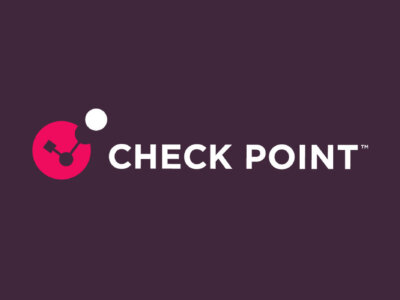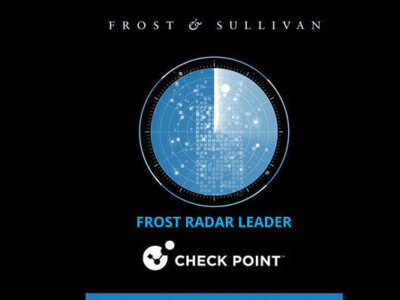
Check Point Customers Are Protected: Harmony Endpoint Defends Against WebP Zero-Day Vulnerability
Highlights:
- WEBp (CVE-2023-5129/4863) is a zero-day vulnerability, actively exploited in the wild.
- Exploitation of buffer overflow flaws can result in program crashes or the execution of arbitrary code, impacting availability and integrity
- Harmony Endpoint users are protected with the Posture Management add-on package which keeps users safe against this Vulnerability
In the realm of cybersecurity, where threats lurk in the shadows of the digital landscape, a new player has emerged, shaking the foundations of web security. The WebP Zero-Day Vulnerability, denoted as CVE-2023-5129/4863, has cast its ominous shadow over the cyber horizon, with reports of active exploitation sending shockwaves through the cybersecurity community.
What is WebP Zero-Day Vulnerability?
This vulnerability centers around the “lossless compression” feature supporting WebP, also referred to as VP8L. In the realm of image formats, a lossless format is designed to capture and restore pixels with impeccable precision—essentially, displaying images with 100% accuracy. WebP achieves this feat through the utilization of Huffman coding, an algorithm at the heart of its compression mechanism.
While the conceptual foundation of Huffman coding lies in a tree data structure, contemporary implementations have evolved to employ optimized tables. The crux of the vulnerability lies in the potential for an overflow in the Huffman table during the decoding process of an untrusted image.
To delve into the specifics, the susceptible versions rely on memory allocations derived from predetermined buffer sizes within a fixed table. Subsequently, these versions proceed to construct the Huffman tables directly within this allocation. The remedial patch introduces a novel approach—a “first pass” construction that calculates the overall size required for the output table without immediately writing it to the buffer. If the calculated size surpasses the pre-established buffer size, a larger allocation is then initiated. This strategic adjustment aims to fortify the system against potential overflows and enhance the overall security posture.
Initially branded as CVE-2023-4863, this vulnerability was tailor-made for Google Chrome, adding an extra layer of complexity to the unfolding saga.
Why WebP Zero-Day Matters
The tendrils of this vulnerability reach far and wide, entangling numerous applications and websites that rely on the WebP library. The stakes are high, as exploiters could maneuver through the digital labyrinth, gaining unauthorized access and pilfering sensitive data.
Our Recommendation
A strategic approach is vital. While the vulnerability is formidable, its exploitation is no walk in the digital park. For the less adept threat actors, crafting a full-blown exploit may take time or even be practically impossible. Thus, our recommendation echoes a proactive stance—identify vulnerable systems and swiftly mitigate the risk through patching.
Endpoint Vulnerability & Patch Management
Endpoint posture management emerges as a stalwart guardian. It serves as the vigilant eye, identifying vulnerabilities and potential threats to endpoints. This applies across all threat types and scenarios. For example, included in Check Points recommendations related to ransomware protections i to “have a patch management strategy in place—and you need to make sure all your team members are constantly up-to-date with the latest versions”
Harmony Endpoint’s posture management capability stands as a beacon, offering automated vulnerability detection, prioritization, and patching. This robust defense mechanism aims to reduce the attack surface and eliminate the risk of breaches, ensuring a consistent security posture across all digital frontiers. Check Point customers using Harmony Endpoint are protected also against the WebP vulnerability described in this report, as you can see in the attached video:
Enhancing endpoint protection by preventing vulnerability exploits
Endpoint posture management is a critical component of endpoint security. It helps organizations identify vulnerabilities and potential threats to their endpoints, and ensure a consistent security posture across all endpoints. Harmony Endpoint’s posture management capability, provides automated vulnerability detection, prioritization and patching to reduce the risk of a data breach or other security incident and protect your organization’s digital assets without overloading your security admins. These advanced capabilities are achieved by integrating Ivanti Neurons, an automation vulnerability patching platform, into Check Point’s Harmony Endpoint Protection
About Harmony Endpoint
Harmony Endpoint is a complete endpoint security solution built to protect the remote workforce from today’s complex threat landscape. It provides a 360° endpoint protection with advanced EPP, EDR and XDR capabilities all in a single client. Its prevention-first approach ensures your organization is not exposed to attacks and it simplifies your security operations, reducing both costs and effort. With Harmony Endpoint, your organization gets all the endpoint protection it needs, at the quality it deserves, in a single, efficient, and cost-effective solution.
Contact us to request a demo of Harmony Endpoint Posture Management capabilities and learn about our end-of-year sale with a free package upgrade.


